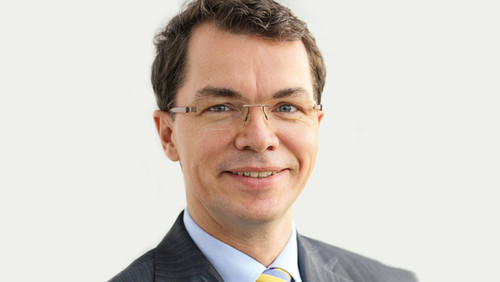

Carsten Thiel is a biopharmaceutical expert with over 25 years experience in the commercial pharmaceutical industry. Holding a PhD in Molecular Biology and Biochemistry, he has contributed to countless medical advancements throughout his career, particularly in the fields of oncology and rare diseases. He has had numerous leadership positions internationally including CEO of Abeona Therapeutics Inc, CCO at Alexion and Head of Europe at Amgen. Most recently, he has been appointed to the position of President of Europe at EUSA Pharma, a young specialty pharmaceutical company with a global reach.
What drove you to pursue a career in the pharmaceutical industry?
My parents were both in the medical field themselves, so in a way you could say it’s in my blood. But, even though I was inspired by the work my parents did, I do feel I came to find a passion for pharmaceutical work on my own terms. I can still remember the moment in one of my biology classes that I first learned of DNA. Though young, I was entranced with the idea that every living creature’s biology could essentially be broken down into genes that define every single one of your characteristics. The idea that we have this genetic roadmap encoded in all of us was an alluring one -- discovering the key for that map would mean the answer to cures as well as the prevention of so many devastating diseases. I knew at that point that I desired nothing more than to use my aptitude toward the sciences to research and study such cures.
What was your educational path like?
I decided to pursue an undergraduate degree in the field of biochemistry. I started my education in Germany at the Philipps University of Marburg, but I was soon given the opportunity to enroll in the prestigious University of Bristol in England. I was quite comfortable in Marburg, but the University of Bristol is one of Britain’s most research-intensive institutions, which appealed to me greatly. While I obviously desired to make a prolific career for myself, I was drawn to Bristol’s emphasis on academics rather than vocational training and made the decision to transfer. After receiving my undergraduate degree in biochemistry, I returned to Germany to attend the Max Planck Society for the Advancement of Science. During my time at the Institute for Biophysical Chemistry, I focused my research on the transition of cells from healthy to cancerous, and specifically the role proteins play in that transition. It was there I earned my Ph.D in molecular biology.
What is an example of a pivotal choice you’ve made in your career?
A choice that comes to mind pretty quickly was one that had ethical ramifications as well as financial. I was working with my team on the development and distribution of a new treatment for colorectal cancer, and just before it was approved for production and introduction into the mass market we learned of a biomarker that could be used to discern whether a patient would respond well to the drug therapy. As leader of the team, it was down to me to make the call of whether to proceed on schedule in light of the new information. On the one hand, if we proceeded as planned and didn’t disclose the biomarker there was a potential for a much higher profit, as patients would need to purchase and try the drug to determine its effectiveness for them personally. On the other hand though, in an oncological treatment plan where time can be of the essence, saving time by pre-determining a patient’s response to their cancer treatment could prove to be vital to a patient’s recovery. I felt that morally we were accountable to divulge the information, and even took it a step further proposing the creation of a standardized test for practitioners to use, providing initial education on the product, as well as offering specialized customer service support. This was met with some pushback, but I believed it was not only the moral path to follow, but also the more innovative one.
What advice do you have to give to other leaders, whether in your field or otherwise?
I would say to surround yourself with an incomparable team that you personally admire. It can be a hard pill to swallow, especially as a leader or entrepreneur, but nobody can do it all. Because of that it is essential that you learn and know your own strengths well, so that you can put your time and energy into that and delegate other matters to people who’s strengths better match the task. At this point in my career, eighty percent of my day to day operations I spend interacting with patients and people, and this is a conscious choice I have made. While I love science, I am aware that my true abilities within the industry are best served by utilizing my people skills and ability to connect with people. As far as how I’ve built my teams, I’ve actually trekked the Swiss Alps with a few of my colleagues, so that should be a good indication in and of itself of the trust I am able to put in them.
Follow Carsten Thiel on Twitter and ThriveGlobal.